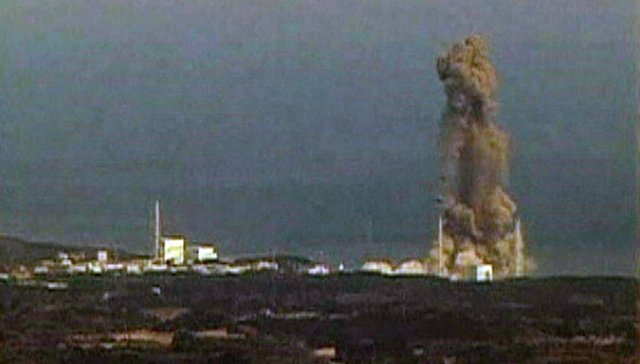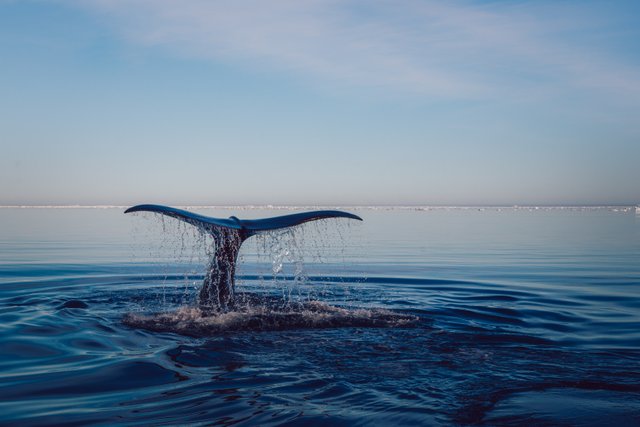Our Oceans are suffering.
A 9 magnitude earthquake near the island of Honshu started a domino effect that changed the world. Seems as though whenever there is a huge risk to humanity there is always nature at the bottom of it. Taking back what is rightfully hers. This earthquake created a tsunami on March 11, 2011 which hit many areas of the Japanese coast. One area that was extremely damaged was Fukushima and their Daiichi I nuclear power plant. The damage so severe that multiple reactors at the power plant failed with some exploding and shooting out plumes of radioactive dust for miles.

(Credit)
Then something happen that “no one expected”, which seems to be the underling tone of such issues. The damage caused meltdowns of some of the fuel rods. The radiation from the fuel rods started to seep into the Pacific Ocean at an alarming rate. First this “meltdown” was said to be minimal and that everything had been under control. This was far from the truth, about this time last year TEPCO admitted to covering up (Not covering with dirt, which was an actual plan to “fixing” the issue) and lying about the disaster.
“The company responsible for the Fukushima Dai-ichi nuclear power plant has admitted lying about the meltdown of its reactors five years ago, in a deliberate cover-up of the world’s second worst nuclear disaster.” - https://www.thetimes.co.uk
“Immediately after the catastrophic accident at the Fukushima nuclear plant, then TEPCO President Masataka Shimizu instructed employees not to use the term “meltdown,” leading to a delay in the official announcement, according to a report compiled by the investigation panel commissioned by the company.” - http://www.asahi.com
I do not mean to run TEPCO's name into the ground with this but I believe it's important to have transparency with such tough issues. I'm glad things were resolved and that the mistakes of propaganda use was somewhat resolved. I will personally have doubt in anything said by TEPCO but, that should reinforce us all to examine any evidence shown to us. This is a global issue because our oceans are one and will be effected by this tremendously. We still don't know the extent of the damage caused to our ecosystem. It is said that the damage is minimal but I highly doubt that tons of radioactive water being dumped into the ocean is minimal by any standards. The dumping of radioactive material into the ocean is internationally illegal but that was quickly over turned in this disaster.
“The gigantic wall, which the utility describes as impermeable, has an underground section that reaches as deep as 30 meters. It will reduce the amount of tainted water flowing into the sea from 400 tons to 10 tons a day, according to TEPCO’s estimate. Until Monday, about 400 tons of groundwater was draining along the sides of the buildings and into the sea each day, after being contaminated with fallout from the 2011 meltdown crisis, according to TEPCO. The utility says an estimated 150 tons of underground water is still flowing into the basements of the damaged reactor buildings each day.” - http://www.japantimes.co.jp
There have been many tries at fixing the problem. These reactors offer a unique problem because they are so close to the ocean. The fixing of this will involve billions in resources, if it ever gets fixed. This is another issue within the array of problems already stacking up. We do not have a viable solution to date. All of the tries at fixing the entire problem have been experiments. Everything from freezing the ground to building huge underwater walls. I applaud TEPCO's trying to solve the issue but there needs to global movement about this. And TEPCO's transparency will be it's most powerful ally. We need to know as a global community what the progress and status is of these reactors. To date it seems they have done a better job at doing that but we still need to solve the issue at hand. Some of the best engineers will be needed for this.
We might be quick to believe that this is a non-issue or that this is only Japan's problem. But this has snowballed into something that may endanger the next generations of this earth. We don't know where tons of the melted reactor fuel has gone. We (As in the global community) only have educated guesses as to where they went. Most of the evidence points to them melting through the floor and going into the earth. We have tried to send robots into the reactor to have a look but the robots die due to the high level of radiation.
“TEPCO has attempted to use custom-built robots to access high-dose radiation parts of the reactor buildings where humans cannot go. "All the robots have been disabled, the instrumentation, the camera … have been disabled because of the high radiation fields," former NRC boss Gregory Jaczko said.” - http://www.abc.net.au
“The operators of the plant, Tokyo Electric Power Co. (TEPCO), deployed over 800 workers inside the No. 2 reactor at the No. 1 plant between December 2016 and February 2017 -- but so far, they have been unable to identify the location of the melted nuclear fuel.” - http://mainichi.jp
“The operator of the stricken Fukushima nuclear plant has revealed that 600 tonnes of reactor fuel melted during the disaster, and that the exact location of the highly radioactive blobs remains a mystery.” - http://www.abc.net.au
The reactor buildings themselves are being weakened from the inside and are losing their structural strength because of sea water inflow. There are just so many bad things starting to pile up on an already horrible problem. The levels of radiation have been increasing over the years after the disaster as well. What will these waves of radiation do to the sea life and ecosystem as a whole? I'm afraid only few know.
“According to a press release issued by TEPCO, Fukushima plant’s operator, the water samples retrieved from the tunnels on December 3rd contained 482,000 becquerels per liter of radioactive cesium and about 500,000 of beta-ray-emitting substance becquerels per liter of a beta-ray-emitting substance, which is about 4,000-4,100 times higher compared to the samples taken a year ago, Japanese NHK TV channel reports.” - https://sputniknews.com
To finish up, this only leaves more questions than answers, what does this mean for the future of nuclear power plants? Among the international nuclear community this has caused much discussion but I'm afraid many in the public don't know yet. Will we ever solve this problem? It will take decades and billions but are we to turn the other cheek and forget about such an incident? I personally do not know where this will go, all I can do is watch as a private citizen of the earth. We can only sit and imagine what this will do to life in the ocean. Remember to count your blessings and enjoy life.
-Citizen


This work is licensed under a Creative Commons Attribution-NonCommercial-ShareAlike 4.0 International License.
We are the earth thugs